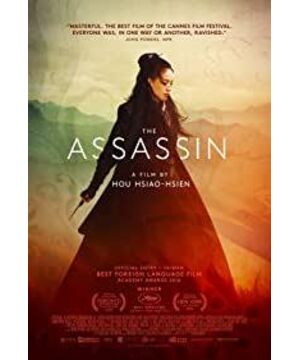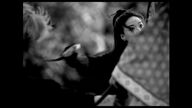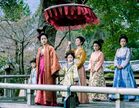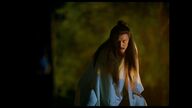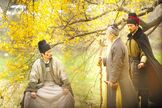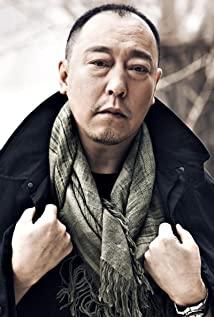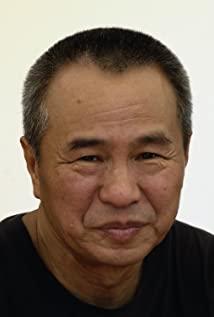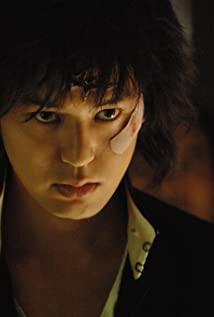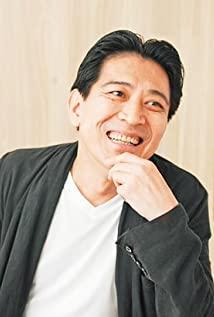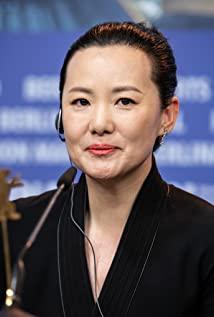Zhang Zhen and Shu Qi's lines sound a bit awkward, but it's not their fault. After all, the films released by the mainland in Taiwan have never been dubbed in Taiwanese. However, the lines will be controversial, to be expected. "It was sent back by the caravan that Master Ru entrusted to sell tea back then." As soon as this sentence came out, you can guess that it will be spit out by Chinese graduates and traditional culture lovers. The point of spit is: Do you think that saying "you" as "ru" is called classical Chinese? Some of the lines interspersed between ancient and modern times have also been criticized. I think the screenwriter is very wronged, Acheng and Zhu Tianwen are not even unable to speak clearly, but trying to reproduce the language of the ancients in the film is a thankless task. If it is completely reproduced, the audience cannot understand it; if it is embellished with a few sentences, it will be said by professionals that it is not professional enough. It's hard to talk to everyone, so it's better for everyone to be tolerant and understand the difficulties of screenwriting.
During the screening, some people walked away one after another, probably because the plot was too dull and incoherent. It may be dull, but the continuous shooting of martial arts is a long shot as always, and I also refreshed my experience of watching movies. If it is incoherent, the plot of the original book is also incoherent. For example, Nie Yinniang's husband appears very nonsensical: "Suddenly, a young man who is wearing a mirror and a door, the girl said: This person can be my husband." That's it. When looking at movie reviews, one of the key points of controversy is: Is the first priority of a movie telling a story? Should movies consider the audience? There is no one-size-fits-all answer to this question. My idea is: the director will talk about it if he likes it, and if he doesn't like it, he will not talk about it. If he doesn't tell the story well, but he can attract the audience, he is very good. If the story is not told well, the audience will run away, and he is so poor that he has no money to eat, then he will naturally change. If you would rather starve to death without changing, you will respect him as a man. People who don't like Hou Hsiao-hsien's style will take a detour after seeing him and learn to watch the former Baidu director of movies. If you like it, bring your friends and brush it twice, buy a DVD and collect it, everyone is happy.
Finish the insufficiency, so that you can say that you like it without distraction. What is the reason for liking it? The first is slow. A 100-minute movie, you can slowly tell how the person Nie Yinniang is going to assassinate sees her younger son playing Cuju. At that moment, I forgot that I was watching a movie, as if I was watching the daily life of ordinary people more than a thousand years ago. Life. In the bath scene, the servants sprinkled petals and medicinal herbs into the water in the same way, and picked them up and smelled them. It doesn't seem to have anything to do with the plot, but I inexplicably like this part. Maybe there are some irrelevant fragments in life, what is the meaning of it? not at all. However, we live like this. Can a movie be made like this? At least it made a viewer stare at the details buried in time. At the end, Nie Yinniang and the mirror-grinding teenager drifted away, disappearing in the mist, and in the distance were vast green hills and quiet fields. The rhythm in my heart, initially consistent with the current Shanghai, gradually approached the time and space in the movie. "The chickens live in the village. As the sun goes down, the sheep and cattle come down." That's the feeling.
Hou Hsiao-hsien always reminds me of the "Book of Songs", which is the gentleness and honesty of agricultural civilization, a long-lasting emotion. At the beginning of "City of Sadness", Kuanmei is walking on a mountain road in Jiufen, surrounded by silver-white Miscanthus in autumn. Narrator: "There is already the coolness of autumn on the mountain, and the scenery along the road is very good. Thinking of being able to see such beautiful scenery every day in the future, I have a feeling of happiness in my heart." At the end, Kuanmei's husband was taken away, and she wrote to A Xue Letter: "September is getting colder, the mango blossoms are blooming, and the mountains are covered in white, like snow." Nie Yinniang gave up the assassination and came back to be with the mirror-grinding boy. People in the village said she was keeping her promises. I remembered the previous clip of two people walking through the field one after the other. This kind of faint feeling is like burying a seed in the soil and waiting for it to sprout, bloom, and bear fruit. There is a kind of long-term patience.
The second reason I like it is because the gesture of the princess playing the piano is generally correct. Although I'm not very skilled, the scatter is basically correct, and it is obvious that someone has taught it. It can be seen that the director paid attention to the details. When I watched a movie before, whenever there was a clip of Go, I always watched the chess manual with two eyes. In so many movies, the chess score is completely correct, only "Wu Qingyuan". In the same way, it is not easy to play the piano correctly. There is also the scene where the name of the movie appears at the beginning. There is a silhouette of a tower in the distance, which is indeed the shape of the Tang Dynasty. The Tang-style buildings that appeared later, showing the color of the logs, were all shot in Japanese temples, and the colors were somewhat different from those of the Tang Dynasty. Some people say that it is not good to go to the main hall of Foguang Temple in Wutai Mountain to take pictures? It doesn't seem to work, because there is only one main hall left. What about the scene of walking through the promenade? Shooting in Japan is also the best way I can think of to photograph Tang Dynasty architecture.
The third reason I like it is the scenery. Autumn ponds, rivers, wheat fields, distant mountains... It seems that all the intense emotions in the world can be resolved due to the existence of the earth. In winter, all things wither, but people will not despair, because they know that in spring all things will recover. Flowers bloom and fall, the balance of nature. After reading it, Yuan said that he thought of Bresson, and I said that he thought of Yasujiro Ozu. Maybe people will always see what they want to see. PS: I don't know if Zhang Zhen is a benefit to the audience who didn't leave midway\(^o^)/~ It's a pity that the film review can't be shown on the picture.
View more about The Assassin reviews


